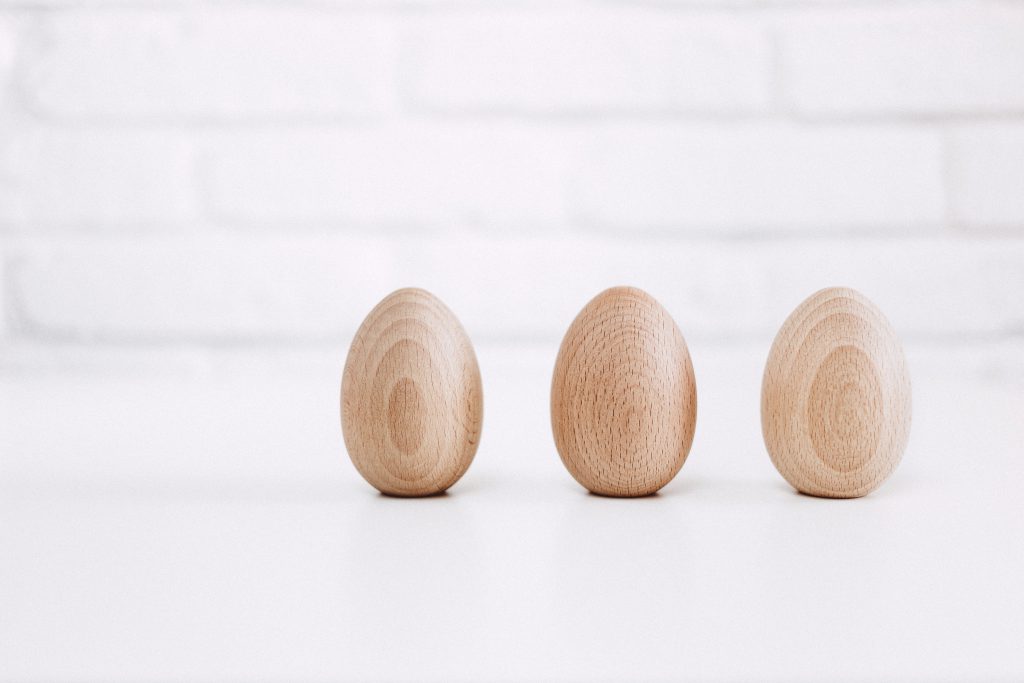Using Different Types Of Cheese In Your Scotch Eggs

Using Different Types Of Cheese In Your Scotch Eggs
Types of Cheese Suitable for Scotch Eggs
Cheddar
Cheddar is a traditional cheese for Scotch eggs, and for good reason. It has a pointy, tangy taste that stands up properly to the other components in the dish, and it melts fantastically, creating a gooey middle that’s irresistible.
There are many several varieties of cheddar cheese obtainable, so you probably can choose one that suits your taste. A sharp cheddar will give your Scotch eggs a extra intense flavor, whereas a mild cheddar might be more subtle.
If you are in search of a cheese that may melt particularly properly, search for a cheddar that’s aged for at least six months. The longer the cheddar is aged, the more flavorful and melty it will be.
No matter what type of cheddar you select, make sure to grate it contemporary for one of the best results. Pre-grated cheddar cheese could be dry and crumbly, and it’ll not soften as nicely as freshly grated cheese.
Monterey Jack
Monterey Jack cheese is a semi-hard cheese that is originally from California. It has a mild taste and a barely crumbly texture.
Monterey Jack is a good choice for Scotch eggs because it melts nicely and has a gentle taste that will not overpower the other elements.
To use Monterey Jack cheese in Scotch eggs, merely cut it into small cubes and add it to the meat combination before breading and frying.
Gruyere
Gruyere is a sort of Swiss cheese that’s produced from cow’s milk. It has a nutty, slightly sweet taste and a firm, barely elastic texture. Gruyere is an efficient selection for Scotch eggs as a result of it melts nicely and has a good flavor that will complement the opposite ingredients within the dish. When using Gruyere in Scotch eggs, it is important to grate the cheese finely so that it’s going to melt evenly. You can even add a bit of grated Parmesan cheese to the mixture for extra flavor.
Using Different Types of Cheese in Your Scotch Eggs
Cheddar
Cheddar is a classic alternative for Scotch eggs, and for good reason. Its sharp, nutty taste pairs completely with the wealthy, savory sausage meat. Cheddar can additionally be an excellent melting cheese, so it’ll create a gooey heart when the Scotch eggs are cooked.
If you’re looking for a more complex flavor, you’ll have the ability to strive using a combination of cheddar and one other sort of cheese, similar to blue cheese or goat cheese. Blue cheese will add a tangy, salty flavor, while goat cheese will add a creamy, tangy taste.
No matter what type of cheese you choose, be certain to use a great quality cheese. The higher the cheese, the better your Scotch eggs will be.
Here is a recipe for Scotch eggs using cheddar cheese:
Ingredients:
- 1 pound ground sausage
- 1/2 cup bread crumbs
- 1/4 cup chopped onion
- 1 tablespoon chopped parsley
- 1 teaspoon salt
- 1/2 teaspoon black pepper
- 1/2 cup grated cheddar cheese
- 12 hard-boiled eggs, peeled
- 1 cup flour
- 2 eggs, beaten
- 1 cup bread crumbs
- Oil for frying
Instructions:
- In a big bowl, mix the sausage, bread crumbs, onion, parsley, salt, and pepper. Mix nicely.
- Divide the sausage mixture into 12 equal portions. Flatten every portion right into a circle.
- Place a hard-boiled egg in the middle of every circle of sausage. Wrap the sausage around the egg, pressing to seal. Roll the Scotch eggs in flour, then dip them in the beaten eggs. Finally, roll the Scotch eggs in the bread crumbs.
- Heat the oil in a large skillet or deep fryer to 375 levels F. Fry the Scotch eggs in batches until golden brown and cooked by way of, about three minutes per batch.
- Serve the Scotch eggs scorching with your favorite dipping sauce.
Flavor:
– Cheddar: A basic selection for Scotch eggs, cheddar offers a pointy, tangy flavor that pairs nicely with the sausage and breadcrumbs.
– Blue cheese: For a more complicated taste, try utilizing blue cheese. The salty, pungent notes of blue cheese will add a particular touch to your Scotch eggs.
– Mozzarella: Mozzarella is a gentle, creamy cheese that can melt easily and supply a gooey center to your Scotch eggs.
– Feta: Feta is a brined cheese with a salty, tangy flavor. It will add a Mediterranean flair to your Scotch eggs.
– Goat cheese: Goat cheese is a gentle, crumbly cheese with a light, tangy taste. It will add a fragile contact to your Scotch eggs.
– Manchego: Manchego is a firm, nutty cheese made from sheep’s milk. It will add a wealthy, earthy taste to your Scotch eggs.
– Parmesan: Parmesan is a tough, grating cheese with a salty, nutty taste. It will add a sharp, umami observe to your Scotch eggs.
Texture:
Cheddar is a classic alternative for Scotch eggs, and for good cause. It’s a firm, flavorful cheese that holds its shape nicely when cooked, and it melts fantastically, creating a gooey heart that contrasts properly with the crispy exterior.
But there are many different forms of cheese that can be used to make Scotch eggs, every with its own unique taste and texture. Here are a couple of ideas:
Mozzarella: Mozzarella is a delicate, creamy cheese that melts simply, creating a gooey, stretchy inside. It’s a sensible choice for Scotch eggs should you’re in search of a wealthy, decadent flavor.
Feta: Feta is a brined cheese with a tangy, salty flavor. It’s a good choice for Scotch eggs when you’re on the lookout for one thing with a bit of a kick.
Parmesan: Parmesan is a tough, grating cheese with a nutty, salty flavor. It’s a good choice for Scotch eggs when you’re in search of something with a strong flavor that will stand up to the other components.
Gruyere: Gruyere is a semi-hard cheese with a nutty, candy flavor. It’s a good selection for Scotch eggs when you’re looking for something with a posh taste that will soften easily.
No matter what sort of cheese you choose, make sure it is a good melting cheese. This will be sure that your Scotch eggs have a gooey, flavorful middle.
Melting Quality:
Melting Quality:
Some cheeses melt better than others. For a gooey, melted heart, use a cheese that melts easily, corresponding to Cheddar or Mozzarella. If you favor a firmer center, use a cheese that melts less easily, such as Parmesan or Gruyère.
Flavor:
You can use any sort of cheese you like in your Scotch eggs, but some cheeses pair higher with sausage than others. Cheddar is a basic choice, however you may also try Monterey Jack, Gouda, or Swiss. If you desire a more intense taste, use a cheese that has been aged for a longer time frame.
Texture:
The texture of the cheese can even affect the overall texture of your Scotch Egg Recipe eggs. A soft, creamy cheese will create a gooey center, whereas a tougher, drier cheese will lead to a firmer heart. You can also use a mixture of cheeses to create a posh texture.
Monterey Jack
Monterey Jack is a light, semi-hard cheese that melts properly. It has a slightly candy and nutty flavor and is an effective all-purpose cheese for cooking.
In Scotch eggs, Monterey Jack can be used as the principle cheese filling, or it might be mixed with other cheeses, corresponding to cheddar or blue cheese.
Monterey Jack melts easily and evenly, and it has an excellent amount of stretch, which makes it ideal for creating a gooey, flavorful middle in your Scotch eggs.
To use Monterey Jack in your Scotch eggs, simply grate it and add it to your required filling components.
You also can wrap the Scotch eggs in Monterey Jack slices earlier than breading and frying them.
This will give your Scotch eggs a crispy, tacky crust.
Flavor:
Using mature cheddar is a straightforward possibility for scotch eggs, but why not use one thing somewhat different? You might use a younger cheddar for a milder flavor, or try a sharp cheddar for one thing extra intense.
If you’re in search of a cheese that can soften nicely, try a gentle cheese like brie or camembert. For a extra complex flavor, attempt utilizing a blue cheese or a goat cheese.
You can also use a mix of cheeses to create a unique flavor. For example, you would use a mix of cheddar and blue cheese, or cheddar and goat cheese.
No matter what kind of cheese you utilize, make sure to grate it finely so that it will melt evenly all through the scotch egg.
Texture:
The right cheese can elevate your Scotch eggs to the next level, including richness, taste, and texture.
Consider these choices:
- Mature Cheddar: A basic selection, providing a nutty, tangy taste and firm texture that holds its form properly.
- Stilton: A blue cheese with a powerful, pungent flavor that adds complexity and a creamy, crumbly texture.
- Creamy Brie: A gentle, buttery cheese that melts easily, making a gooey middle and a rich, savory flavor.
- Sharp Pecorino Romano: A hard, salty cheese that adds a sharp, nutty flavor and a crumbly texture that contrasts with the meat.
- Smoked Gouda: A semi-hard cheese with a smoky, barely candy flavor that provides a touch of smokiness and a creamy texture.
Melting Quality:
Melting Quality:
The sort of cheese you choose will significantly impact the melting high quality of your Scotch eggs. Ideally, you need a cheese that melts smoothly and evenly, without changing into stringy or rubbery. Some good choices embrace:
- Cheddar
- Monterey Jack
- Swiss cheese
- Emmental
If you’re using a cheese that does not melt very nicely, you’ll find a way to add somewhat bit of butter or cream to assist it along. You can even pre-melt the cheese in a microwave or double boiler before adding it to the eggs.
Gruyere
Gruyère is a tough, yellow cheese created from cow’s milk that originates in Switzerland. It has a nutty, slightly sweet flavor with a hint of caramel. Gruyère is a good selection for Scotch eggs as a result of it melts properly and has a rich, advanced flavor that complements the other components.
To use Gruyère in Scotch eggs, merely grate the cheese and add it to the sausage mixture earlier than forming the eggs. You can use as much or as little cheese as you want, relying in your private preference. For a stronger cheese flavor, use extra Gruyère. For a milder cheese flavor, use much less.
Once the Scotch eggs are shaped, they can be cooked in a variety of methods. They may be fried, baked, or air fried. If you’re frying the Scotch eggs, make sure to heat the oil to a medium-high temperature before including the eggs. This will assist to prevent the eggs from sticking to the pan and will also assist to create a crispy crust.
Scotch eggs are a delicious and versatile dish that could be loved for breakfast, lunch, or dinner. By using several varieties of cheese, you presumably can create a wide range of totally different flavors and textures. Gruyère is a superb selection for Scotch eggs as a end result of it has a wealthy, complex taste that complements the opposite components. So next time you are making Scotch eggs, remember to give Gruyère a try.
Flavor:
Using Different Types of Cheese in Your Scotch Eggs: Flavor
The type of cheese you utilize in your Scotch eggs can have a big impact on the flavour. Here are a few well-liked options to think about:
Cheddar: A sharp cheddar cheese will give your Scotch eggs a bold and flavorful taste. It’s a classic choice that pairs nicely with the sausage and eggs.
Gruyère: This Swiss cheese has a nutty and slightly candy taste that can add a touch of sophistication to your Scotch eggs. It’s a fantastic selection if you’re on the lookout for a cheese that can soften smoothly and evenly.
Blue cheese: Blue cheese is a pointy and pungent cheese that will add a little bit of funk to your Scotch eggs. It’s not for everybody, however if you’re a fan of blue cheese, it’s a nice way to add some further flavor to your dish.
Mozzarella: Mozzarella is a mild and creamy cheese that may add a touch of richness to your Scotch eggs. It’s a good selection if you’re on the lookout for a cheese that will melt easily and evenly.
Pepper jack: Pepper jack is a semi-hard cheese with a spicy kick. It’s a great alternative when you’re looking for a cheese that will add some warmth to your Scotch eggs.
No matter what kind of cheese you select, make sure to make use of a high-quality cheese that can melt well. This will help to guarantee that your Scotch eggs are flavorful and delicious.
Texture:
Using Different Types of Cheese in Your Scotch Eggs: Texture
Smooth and Creamy: A cheese like brie or camembert will melt right into a smooth, creamy center, adding richness and a refined tang.
Firm and Tangy: A cheese like cheddar or gruyere will maintain its form higher during cooking, making a flavorful, tangy filling.
Sharp and Salty: A cheese like blue cheese or feta will add a sharp, salty kick to your Scotch eggs, balancing out the richness of the meat.
Nutty and Sweet: A cheese like parmesan or pecorino will add a nutty, slightly sweet taste to your Scotch eggs, creating a complex and satisfying taste.
Melty and Gooey: A cheese like mozzarella or fontina will soften fantastically, making a gooey, stretchy middle that can remember to impress.
Melting Quality:
Melting Quality
The type of cheese you utilize in your Scotch eggs will affect the melting high quality of the egg. Some cheeses, corresponding to cheddar, soften well and will create a gooey, flavorful middle. Other cheeses, corresponding to mozzarella, do not melt as well and will create a extra solid heart. If you’re looking for a cheese that can melt well, choose a cheese with a high fats content. The larger the fat content, the extra the cheese will melt.
Here are some suggestions for melting cheese in your Scotch eggs:
- Use shredded cheese. Shredded cheese will melt extra evenly than sliced or cubed cheese.
- Add the cheese to the eggs after they’ve been breaded and fried. This will forestall the cheese from burning.
- Cook the Scotch eggs over medium warmth. This will permit the cheese to soften slowly and evenly.



Recent Comments